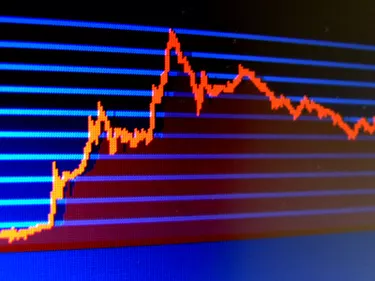
When you invest, you do so in hopes that your money will grow over time. It is important, however, to understand the various factors that can affect the return not only on your investments but the investments of others as well. A number of outside influences can alter the returns on stocks and bonds and even on fixed income investments like CDs and savings accounts.
Federal Reserve Policy
Video of the Day
The Federal Reserve controls the nation's money supply, and it uses that control in an attempt to moderate inflation and keep the economy growing in a stable manner. One of the tools the Federal Reserve uses is interest rates, and it has the power to raise and lower interest rates when it sees fit. The changes the Fed makes to the discount rate filter through the rest of the economy and affect everything from the rate you pay on your mortgage to the interest you earn on your CD and savings account.
Video of the Day
The Business Cycle
The value of an investment, and the return on that investment, can be influenced by factors beyond the control of the company involved. When the economy enters a recession, the earnings of most companies decline. When those earnings fall, the stock price often follows suit. Fears of a recession, or simple uncertainty about the future direction of the economy, can also affect the return on your investment. Conversely, when people feel great about the economy, investors often bid up stocks past their fair value, resulting in higher returns and happier shareholders.
Company Growth Rates
The rate of growth in a company's revenue and earnings can have a strong impact on its stock price and the return you get from owning it. Investors tend to place a higher price/earnings multiple on companies in their rapid growth phase, when earnings can grow 20 percent or more year over year. As the growth in earnings and revenue slows, the value investors place on the company can decline as well. Investors often refer to the price/earnings (P/E) ratio when valuing stocks -- the P/E ratio is simply the relationship between the earnings per share and the price of the stock. It is easy to calculate P/E by dividing the current price of the stock by its annual earnings. For instance, a stock with earnings of $2.00 per share and a price of $60 has a P/E of 30.
Political Instability
Political instability and outside events, either at home or abroad, can have a profound impact on the earnings of your investments. A sudden shock such as a terrorist attack or a coup in a volatile region can send stocks tumbling, at least for a short time. Depending on the severity of the situation, the down period can be extended for quite some time.